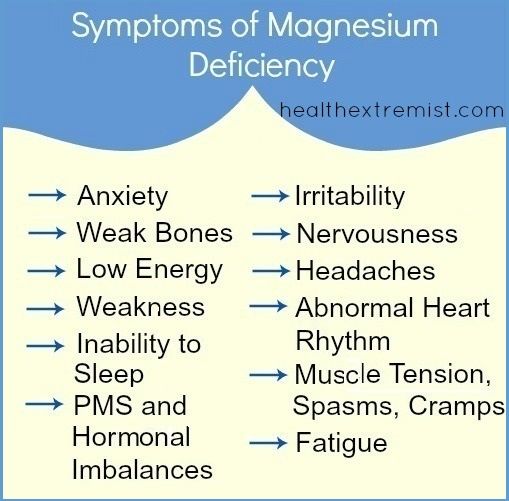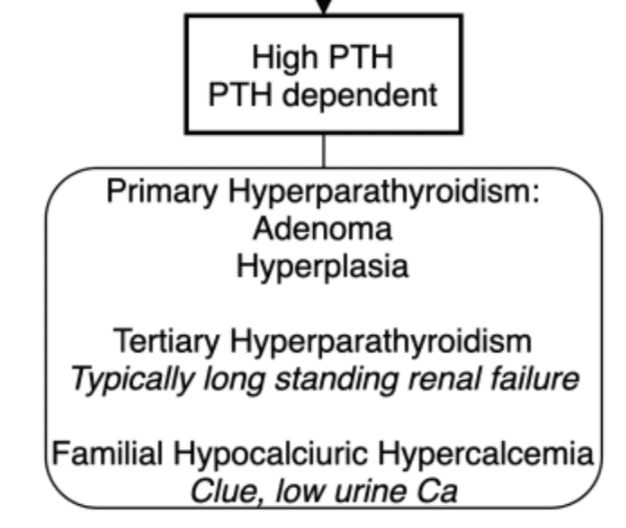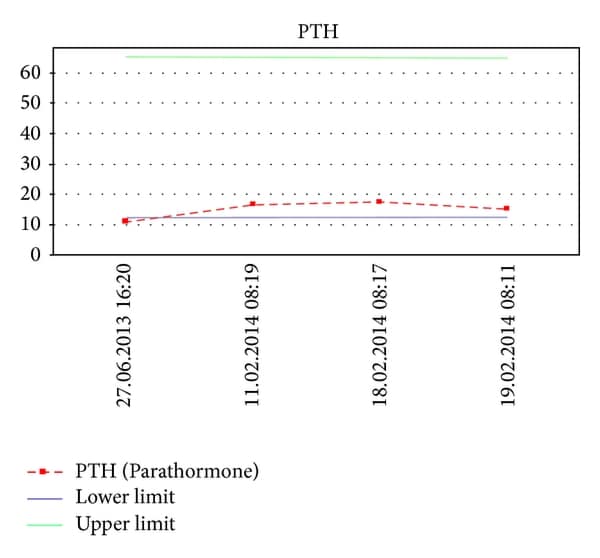Clinical Presentation Of Hypercalcemia
For a long time, clinicians used mnemonics, such as stones, bones, abdominal moans, and psychic groans to memorize the major clinical manifestations of hypercalcemia. Indeed, the major systems affected by hypercalcemia include neuropsychiatric, gastrointestinal, and renal. It is important to note that at least two factors play a role in the development of clinically overt hypercalcemia, such as the degree of hypercalcemia and the rapidity of its development. Patients with hypercalcemia of malignancy typically have a higher degree of hypercalcemia and develop it over a shorter period, which is why these patients are usually more symptomatic than patients with other etiologies of hypercalcemia.
Neurocognitive symptoms of hypercalcemia may include some behavioral disturbances, such as anxiety, mood changes and a decrease in cognitive function, which are typical of milder cases of hypercalcemia . However, as patients with cancer generally present with higher values of calcium, they may develop more severe presentations, such as changes in mental status, including coma. Furthermore, patients with malignancy-related hypercalcemia may develop a syndrome of posterior reversible leukoencephalopathy , which is characterized clinically by the development of headaches, seizures and imaging findings of subcortical edema. Several pathobiological factors such as cerebral vasoconstriction, endothelial dysfunction, and systemic inflammation may precipitate PRES in such groups of patients.
Etiology And Pathobiology Of Hypercalcemia Of Malignancy
There are several major mechanisms of hypercalcemia of malignancy, which are discussed here. First, the major mechanism, accounting for approximately 80% of malignancy-related hypercalcemia, is mediated by the production of PTHrP. It is also important to note that PTHrP is normally produced and secreted by various cells, and normal breast cells in particular. Furthermore, PTHrP under normal physiological conditions participates in the development of various tissues, facilitates transplacental calcium transport, and promotes calcium transfer to breast milk. Both PTH and PTHrP act on the same receptors and their effects consistently overlap. Indeed, the biochemical structure of PTHrP greatly resembles that of PTH. However, PTHrP does not seem to have a major influence on the production of 1,25-dihydroxycholecalciferol. Therefore, PTHrP acts on osteoblasts, leading to enhanced synthesis of RANKL, with subsequent activation of osteoclasts and bone resorption with calcium release into the bloodstream. Increased renal calcium reabsorption is another mechanism through which PTHrP leads to hypercalcemia. Squamous cell cancers, urinary tract cancers , breast cancer, nonHodgkin’s lymphoma, and ovarian cancer account for the majority of malignancies leading to hypercalcemia via PTHrP.
Etiobiology of hypercalcemia of malignancy
What Is Hypercalcemia Caused By
Introduction: Hypercalcemia is mainly caused by bone resorption due to either secretion of cytokines including parathyroid hormone-related protein or bone metastases. However, hypercalcemia may occur in patients with or without bone metastases. The present study aimed to describe the effect of chemotherapy treatment, â¦
Recommended Reading: How Often Chemo For Breast Cancer
Is Hypercalcemia A Sign Of Cancer
This most common cause of hypercalcemia can stem from a small, noncancerous tumor or enlargement of one or more of the four parathyroid glands. Cancer. Lung cancer and breast cancer, as well as some blood cancers, can increase your risk of hypercalcemia. Spread of cancer to your bones also increases your risk. Other diseases.
What Does It Mean When You Have High Calcium Levels

High Calcium Levels or Hypercalcemia. Calcium is a mineral found in different places in the body, including your blood. When you have more calcium in your blood than normal, doctors call it âhypercalcemia.â. It is a serious condition. Up to 30% of all people with cancer will develop a high calcium level as a side effect.
Don’t Miss: Can You Survive Stage 4 Breast Cancer
What Is Hypercalcemia In A Patient
Hypercalcemia is a common metabolic abnormality seen in both inpatient and outpatient settings. Depending on the serum calcium levels, hypercalcemia is categorized either as mild when levels are between 10 to 12 mg/dL, moderate when levels are between 12 to 14 mg/dL, or severe when levels are more than 14 mg/dL. Approximately, 40% to 45% of the serum calcium is attached to albumin, and serum calcium levels may fluctuate based on the serum albumin levels. Therefore, ionized or free calcium levels should be measured when hypercalcemia is suspected. This activity describes the pathophysiology of malignancy related hypercalcemia and highlights the role of the interprofessional team in its management.
Is Hyperthyroidism Linked To Breast Cancer
To further understand the association between hyperthyroidism and breast cancer, we conducted a record-linkage study in Sweden using the Swedish Cancer Registry. A total of 9,835 women who underwent surgery for primary parathyroid adenoma were followed to evaluate the hypothesis that a history of primary hyperparathyroidism increases the risk of subsequent breast cancer.
Also Check: How To Survive Triple Negative Breast Cancer
Diagnosing A Disorder With Few Symptoms
Hypercalcemia can have absent, few or nondifferential symptoms, but the condition can indicate the presence of major diseases such as breast cancer. Experts review how to quickly apply a high index of suspicion to make a diagnosis.
Internists are often the first physicians to diagnose outpatient cases of hypercalcemia, a condition that may have few or no symptoms in the primary care setting if mild. When more advanced, it can be accompanied by a wide-ranging list of complaints and, when severe, it can be the first sign of cancer.
I had a patient who presented with calcium of 20. She had not known that she had breast cancer until she had that calcium level, said Susan B. LeGrand, MD, FACP, an oncologist and palliative medicine specialist at the Cleveland Clinic.Some patients don’t experience the symptoms of severe hypercalcemia if the increase occurs slowly, but a quick increase in calcium is more likely to cause symptoms.
Because symptoms may be absent or nonspecific in many patients, an incidental finding of elevated serum calcium on a periodic multichannel blood test may be the first sign of hypercalcemia. Management of the condition requires understanding the differences between hyperparathyroidism and other causes of hypercalcemia, knowing which patients should be referred to an endocrinologist or surgeon, and understanding how to manage patients in the primary care setting.
In addition to elevated PTH and malignancy, several other factors may cause hypercalcemia:
What Is The Treatment For Cancer Side Effects Called
Treatment for side effects is an important part of cancer care. This type of treatment is called supportive care or palliative care . Talk with your health care team about any symptoms you have, including new symptoms or changes. This helps them find side effects like a high calcium level as early as possible.
Also Check: What Age Could You Get Breast Cancer
What Are The Symptoms Of Hypercalcemia
The mnemonic âmoans, groans, stones, and bones with psychic overtonesâ describes the clinical manifestations of hypercalcemia. Abdominal pain and constipation, muscle or joint pains, boney pain, polyuria, nephrolithiasis, neuropsychiatric symptoms such as depression, headache, fatigue, confusion, cognitive dysfunction are a few of the clinical manifestations that can be present in patients with hypercalcemia depending on the severity and acuity of the disease.
Can High Calcium Levels Be Prevented
There are things you can do to help prevent high calcium levels. The following tips may help keep hypercalcemia from getting worse:
-
Drink fluids regularly.
-
Talk with your doctor about controlling your nausea and vomiting.
-
Walk and be active, which can help stop bone from breaking down.
-
Check with your doctor before taking any medication, including over-the-counter supplements. Some may make high calcium levels worse.
Read Also: What Does Her2+ Breast Cancer Mean
About Calcium In Your Body
Everybody needs calcium for many body functions. It helps form bones and teeth, and it also helps your muscles, nerves, and brain work correctly. Most of the calcium in your body is in your bones. Normally, your blood contains only a small amount. When you are healthy, your body controls the level of calcium in your blood.
Cancer can cause a high calcium level in the blood in several ways. High calcium levels due to cancer are not caused by too much calcium in your diet. Eating fewer dairy products and other high-calcium foods will not lower high blood calcium levels.
Cancers that more commonly cause high calcium levels in your blood include:
-
Loss of consciousness
You and your family should know these serious symptoms. Ask your doctor what you should watch for and when to get treatment.
Cancers Associated With Hypercalcemia

Certain cancers are more associated with hypercalcemia than others.
- Multiple myeloma has the highest risk of occurrence , according to Cancer Medicine.
- Lung and breast cancers also have high rates. Other cancers associated with hypercalcemia include renal, ovarian and squamous cell cancers of the head and neck.
- Colorectal and prostate cancer patients seldom develop hypercalcemia. Prostate cancer has the lowest occurrence rate .
The annual occurrence rate of hypercalcemia for all cancers is 2 percent to 2.8 percent, according to a 2016 analysis of U.S. cases from 2009 to 2013.
Don’t Miss: What To Give Someone With Breast Cancer
What Causes Hypercalcemia In Malignancy
The most common causes include humoral hypercalcemia of malignancy mediated by parathyroid hormoneârelated peptide, osteolytic cytokine production, and excess 1,25-dihydroxy vitamin D production. However, the etiology is not always mediated by malignancy. Hypercalcemia can occur in those with malignancy and an additional etiology for hypercalcemia such as primary hyperparathyroidism or granulomatous diseases. This paper reviews the cancers associated with hypercalcemia and their proposed mechanisms, nontumor-mediated hypercalcemia, as well as diagnosis and treatment strategies for each condition.
What Is Malignancy Work Up
Malignancy work up should be initiated on new diagnosis of malignancy-associated hypercalcemia including but not necessarily limited to chest radiographs, mammogram, bone scan, bone survey, SPEP/UPEP, and computed tomography of chest, abdomen, pelvis. Many patients presenting with malignancy-associated hypercalcemia have known underlying malignancy in which case further diagnostic testing is not always necessary.
Read Also: How Do You Find Out If You Have Breast Cancer
Calcium And Your Body
Your body uses the mineral calcium for many things. Its important for strong teeth and bones, and the proper functioning of your muscles, cardiovascular system, nerves and brain. It aids in secretion of hormones and enzymes. Normally, when youre healthy, your body regulates calcium levels.
Hypercalcemia tends to develop late in cancer progression. If you develop this condition, you may not be aware of any symptoms at first, as they tend to progress gradually. Some are:
- Nausea, vomiting, decline in appetite
- Abdominal discomfort, constipation
- Frequent need to urinate, increased thirst
- Fatigue, weakness, muscle pain
- Poor kidney function or failure
- Cardiac arrhythmia, heart attack
Why Is Calcium Important For Muscles
Besides building strong bones and teeth, calcium helps muscles contract and nerves transmit signals. Normally, if there isnât enough calcium in your blood, your parathyroid glands secrete a hormone that triggers: Your bones to release calcium into your blood. Your digestive tract to absorb more calcium.
Don’t Miss: Neoadjuvant Therapy For Breast Cancer
Can Hypercalcemia Be Caused By Bone Resorption
Introduction: Hypercalcemia is mainly caused by bone resorption due to either secretion of cytokines including parathyroid hormone-related protein or bone metastases. However, hypercalcemia may occur in patients with or without bone metastases. The present study aimed to describe the effect of chemotherapy treatment, regimens and doses on calcium levels among breast and lung cancer patients with hypercalcemia.
Why Is My Thyroid Gland Hypercalcified
Too much calcium in your blood can weaken your bones, create kidney stones, and interfere with how your heart and brain work. Hypercalcemia is usually a result of overactive parathyroid glands. These four tiny glands are situated in the neck, near the thyroid gland. Other causes of hypercalcemia include cancer, certain other medical disorders, â¦
Also Check: Where Can I Get Tested For Breast Cancer
Signs And Symptoms Of Hypercalcemia
Mild elevations in calcium levels are usually asymptomatic and typically discovered on routine laboratory diagnostic testing .
As calcium levels increase, the following symptoms may occur:
- Alterations of mental status
- Abdominal or flank pain – The workup of patients with a new kidney stone occasionally reveals an elevated calcium level
- Weakness and vague muscle/joint aches
- Polyuria, polydipsia, nocturia
Severe elevations in calcium levels may cause coma.
Expert Review And References

- Fojo AT. Metabolic emergencies. DeVita VT Jr, Lawrence TS, & Rosenberg SA. Cancer: Principles & Practice of Oncology. 9th ed. Philadelphia: Wolters Kluwer Health/Lippincott Williams & Wilkins 2011: 146: pp. 2142 – 2152.
- Health Canada . Regulatory Decision Summary: Xgeva . 2015 : .
- Hemphill RR. Hypercalcemia in emergency medicine. eMedicine.Medscape.com. WebMD LLC 2013.
- Kaplan M. Hypercalcemia of malignancy. Kaplan M . Understanding and Managing Oncologic Emergencies. 2nd ed. Pittsburgh: Oncology Nursing Society 2013: 4: pp. 103 – 155.
- Lewis JL. Hypercalcemia. Beers, M. H., & Berkow, R., . Merck Manual for Healthcare Professionals. Rahway, NJ: Merck Research Laboratories 2013.
- National Cancer Institute. Hypercalcemia Patient Version. Bethesda, MD: National Cancer Institute 2012.
- Topiwala S. Hypercalcemia. National Cancer Institute & National Library of Medicine. MedlinePlus Medical Encyclopedia. Bethesda, MD: National Cancer Institute & National Library of Medicine 2012.
- Yeh HS, Berenson JR. Hypercalcemia. Berger AM, Shuster JL Jr, & Von Roenn JH . Principles and Practice of Palliative Care and Supportive Oncology. 4th ed. Philadelphia: Lippincott Williams & Wilkins 2013: 35: pp. 472 – 480.
Also Check: What Happens When Breast Cancer Spreads To Lymph Nodes
What Is Osteolytic Hypercalcemia
Local osteolytic hypercalcemia accounts for 20% of cases 1 and is usually associated with extensive bone metastases and skeletal tumor burden. It commonly occurs in multiple myeloma and metastatic breast cancer and less commonly in leukemia and lymphoma. Previously, the proposed mechanism was direct destruction of bone by metastases or malignant cells. However, it is now thought to be because of the release of local cytokines from the tumor, resulting in excess osteoclast activation and enhanced bone resorption, often through RANK/RANKL. 5
Hypercalcemia In Metastatic Breast Cancer Unrelated To Skeletal Metastasis
A 48-year-old woman was given a diagnosis of infiltrating ductal breast carcinoma . Treatment at that time involved left lumpectomy with axillary node dissection followed by chemotherapy and radiotherapy. Thirteen years later, she was given a diagnosis of breast cancer recurrence with liver metastasis that was positive for estrogen receptors and HER2 status, and negative for progesterone receptors, based on a core biopsy. Other than the liver metastasis, computed tomography of the brain, chest, abdomen and pelvis showed no other site of distant metastasis, including the visualized skeletal system. A bone scan showed several foci of abnormal radiotracer accumulation consistent with degenerative changes as opposed to metastatic disease. Treatment was initiated, including capecitabine, trastuzumab and pamidronate.
The patient had hypercalcemia documented on multiple occasions, with corrected calcium levels ranging from 2.72 to 2.85 mmol/L, dating back to the time of diagnosis of her breast cancer. She did not have symptoms directly attributable to hypercalcemia apart from one episode of nephrolithiasis 11 years after diagnosis. Hypercalcemia was again noted two years later, with a serum corrected calcium level of 2.95 mmol/L.
Dual isotope parathyroid scan with technetium 99m pertechnetate and technetium 99m sestamibi showing excess sestamibi accumulation and slow washout, consistent with parathyroid adenoma.
Recommended Reading: Does Breast Cancer Metastasis To Lung
Can Breast Cancer Cause Calcium Deposits
Conversely, elevated serum calcium levels resulting from an overproduction of parathyroid hormone may induce tissue calcium deposits in the breast ducts. The unit volume of calcium deposits within the ductal lumens and microcalcifications have been found to be greater in breast cancer cases than in benign breast disease. 20 This may lead to surveillance bias as calcium deposits would lead to higher detection of breast cancers within the realm of mammographic screening programs. The excess risk of breast cancer, however, is present among the younger women below age 50 years, which is the usual age to begin mammographic screening. The excess risk was also observed during the 1960s and 1970s before mammographic screening was routinely available that makes surveillance bias unlikely.
What Types Of Cancer Causes Hypercalcemia
The most common cancers associated with hypercalcemia in the United States are breast, renal, lung, and squamous cell cancers and multiple myeloma . Malignancy is usually evident clinically by the time it causes hypercalcemia, and patients with hypercalcemia of malignancy often have a poor prognosis.
Recommended Reading: Does Breast Cancer Make You Feel Sick
What Is The Most Common Metabolic Abnormality In Hospitalized Patients
Hypercalcemia is a common metabolic abnormality seen in both inpatient and outpatient settings. Depending on the serum calcium levels, hypercalcemia is categorized either as mild when levels are between 10 to 12 mg/dL, moderate when levels are between 12 to 14 mg/dL, or severe when levels are more than 14 mg/dL. Approximately, 40% to 45% of the serum calcium is attached to albumin, and serum calcium levels may fluctuate based on the serum albumin levels. Therefore, ionized or free calcium levels should be measured when hypercalcemia is suspected. The corrected calcium can be calculated by using the following formula: serum calcium + 0.8 x 4 is normal albumin level in g/dL. More than 90% of the cases of hypercalcemia are due to primary hyperparathyroidism and malignancy-induced hypercalcemia . Malignancy remains the most common cause of hypercalcemia in hospitalized patients.
Why People With Cancer Can Have High Blood Calcium Levels
Normally the body controls the level of calcium in the blood very well. High blood calcium levels in the body can happen if:
- your cancer is interfering with the control of the amount of calcium in the bloodstream
- you have cancer in your bones which is causing a release of calcium into the bloodstream
- you have dehydration from being sick or having diarrhoea, this is not a common cause
Also Check: Breast Cancer Education And Awareness